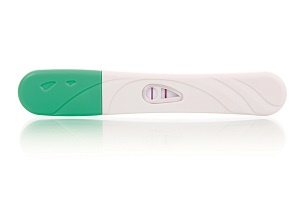Nothing is going to make your pregnancy loss magically ok. Yet some small actions can help things to seem a little more manageable.
1. Ask for help after your miscarriage
A plethora of places will help you after a miscarriage – you just have to find the energy to ask. A miscarriage can be so upsetting, and you and your partner might need counselling or support.
The Miscarriage Association can provide help to deal with how you are feeling and answer questions (Miscarriage Association, 2018a; 2018b). Hospital counselling services can also provide support and Cruse Bereavement Care can help you understand your grief and cope with the loss (Cruse Bereavement Care, 2018). In Scotland, Miscarriage Support provides counselling for women and couples who have suffered miscarriage, stillbirth or neonatal loss (Miscarriage Association, 2013).
2. Speak to someone who understands what you’ve been through
That person might be a friend, a friend-of-a-friend someone has put you in touch with, or a family member.
3. Consider a memorial for your baby
It’s not for everyone but some people find it helpful to have a memorial for the baby they’ve lost. In some hospitals or clinics, you can arrange a burial and doing it at home is an option too, though you’ll need to consult your local authority. Cremation is sometimes an alternative to burial.
You might want tangible evidence of what’s happened. Some hospitals will give you a certificate to commemorate your baby (NHS Choices, 2018).
4. Only think about another baby at a time that is right for you
Physically, you can try for another baby as soon as your symptoms have settled and you've had a period. Just make sure you're emotionally and physically ready first.
If you’re nervous about it happening again, remember that most women are able to have a healthy pregnancy after a miscarriage or even after recurrent miscarriages. The Miscarriage Association discusses some of the feelings you might notice when you get pregnant after a miscarriage so use them for support too (Miscarriage Association, 2017).
5. Give yourself time to recover from your miscarriage
You won’t get over a miscarriage overnight and no-one would expect you to. Take as long as you need to come to terms with and deal with what’s happened to you.
Speak to your boss about taking time off work, cuddle up in pyjamas and watch repeats of your favourite TV show if you fancy. Swerve baby showers and the like if you just can’t face them – that’s completely normal.
6. Don’t judge yourself for your feelings over your miscarriage
First, an important point: there is definitely no right or wrong way to feel after a miscarriage. Just as every pregnancy loss is different, every woman’s reaction to pregnancy loss is different too.
You may feel:
- sad and teary
- shocked and confused
- numb or with no feelings at all
- angry, for example at the ‘unfair’ world, at hospital staff, or when you see yet another pregnancy announcement pop up on Facebook
- jealous of other pregnant women or mothers
- guilty or wondering whether you might have caused the miscarriage (that’s very unlikely)
- empty
- lonely
- panicky and out of control
- unable to cope with everyday life
(Miscarriage Association, 2017)
If you want to read more about the emotional impact of miscarriage, check out the Miscarriage Association’s leaflet (Miscarriage Association, 2017).
7. Consider a miscarriage support group
As well as a UK-wide network of support volunteers, The Miscarriage Association holds a number of monthly support groups. At these groups you can meet up with other women who have been through pregnancy loss. It allows you to chat about what you’ve both been through in a safe and supportive atmosphere.
8. Acknowledge your specific miscarriage situation
You may find it particularly difficult to deal with your miscarriage if you experienced an ectopic pregnancy, a molar pregnancy, late miscarriage, recurrent miscarriage or if you had fertility problems before you got pregnant. You can read more about these situations at The Miscarriage Association.
This page was last reviewed in April 2018
Cruse Bereavement Care. (2018b) About Cruse. Available from: https://www.cruse.org.uk/about-cruse [Accessed 1st April 2018].
Miscarriage Association. (2013) Thinking about another pregnancy. Available from: https://www.miscarriageassociation.org.uk/wp-content/uploads/2016/10/Thinking-about-another-pregnancy.pdf [Accessed 1st April 2018].
Miscarriage Association. (2017) Your feelings after miscarriage. Available from: https://www.miscarriageassociation.org.uk/wp-content/uploads/2016/10/Your-feelings-after-miscarriage-June-2014.pdf [Accessed 1st April 2018].
Miscarriage Association. (2018) How we help. Helpline. Available from: https://www.miscarriageassociation.org.uk/how-we-help/helpline [Accessed 1st April 2018].
Miscarriage Association. (2018a) How we help/Support groups. Available from: https://www.miscarriageassociation.org.uk/how-we-help/support-groups [Accessed 1st April 2018].
Miscarriage Support. (2018) Miscarriage counselling. Available from: http://www.miscarriagesupport.org.uk/how-we-can-help/miscarriage-counselling [Accessed 1st April 2018].
NHS Choices. (2018) Miscarriage – Afterwards. Available from: https://www.nhs.uk/conditions/miscarriage/afterwards [Accessed 1st April 2018].







